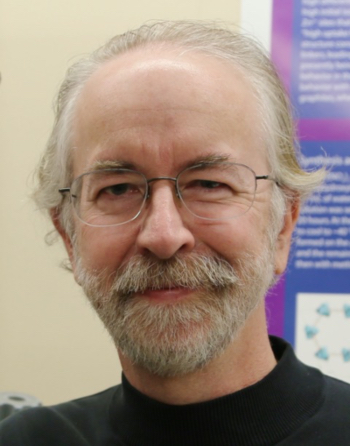Graduate Seminar Series
April 07, 2023
10:00 a.m. ET
7500 Wean Hall
April 07, 2023
10:00 a.m. ET
7500 Wean Hall
The entropy of a material comes from the degrees of freedom of its atoms and electrons. Most of the entropy is from the vibrations of atoms, which grow in amplitude with increasing temperature. The important question is usually how the entropy differs between different states of a material, such when its volume changes with temperature. Today there is enough accuracy in both ab initio computation and inelastic neutron scattering to understand the entropy of materials over a wide range of temperatures. High temperatures are where entropy is most significant thermodynamically, but this is where degrees of freedom become coupled. Normal modes of vibration are no longer independent, for example, and interactions between vibrations and electrons become important. I will describe how such couplings are sorted out and how they alter thermal expansion and free energy. Some of the behavior is surprising.
 Fultz received his B.Sc. from MIT, and his Ph.D. from U.C. Berkeley in 1982. After three years as a postdoctoral fellow and then a staff scientist at Lawrence Berkeley National Laboratory, Fultz joined the faculty at Caltech in 1985. As an assistant professor he was a Presidential Young Investigator, received an IBM Faculty Development Award, and a Jacob Wallenberg Scholarship. Fultz won the 2010 TMS EMPMD Distinguished Scientist Award, the 2016 William Hume-Rothery Award of TMS, and was elected Fellow of the Neutron Scattering Society of America in 2016, Fellow of the American Physical Society in 2017, and Fellow of TMS in 2018. He was named Outstanding Referee of Physical Review in 2019. Fultz has authored or co-authored approximately 400 publications, including graduate-level textbooks Transmission Electron Microscopy and Diffractometry of Materials (4th Ed with Jim Howe), and Phase Transitions in Materials (2nd Ed).
Fultz received his B.Sc. from MIT, and his Ph.D. from U.C. Berkeley in 1982. After three years as a postdoctoral fellow and then a staff scientist at Lawrence Berkeley National Laboratory, Fultz joined the faculty at Caltech in 1985. As an assistant professor he was a Presidential Young Investigator, received an IBM Faculty Development Award, and a Jacob Wallenberg Scholarship. Fultz won the 2010 TMS EMPMD Distinguished Scientist Award, the 2016 William Hume-Rothery Award of TMS, and was elected Fellow of the Neutron Scattering Society of America in 2016, Fellow of the American Physical Society in 2017, and Fellow of TMS in 2018. He was named Outstanding Referee of Physical Review in 2019. Fultz has authored or co-authored approximately 400 publications, including graduate-level textbooks Transmission Electron Microscopy and Diffractometry of Materials (4th Ed with Jim Howe), and Phase Transitions in Materials (2nd Ed).
July 8 2025
1:00 PM ET
Materials Science and Engineering
"Uncovering the Driving Force of Thermal-Activated Grain Boundary Migration in Polycrystals," presented by Zipeng Xu
Doherty A310
July 29 2025
11:00 AM ET
Materials Science and Engineering
Graduate Programs Information Session
Learn more about the master's and doctoral programs in materials science and engineering at CMU.
August 13-15 2025
Materials Science and Engineering
Workshop on Methods for Three-Dimensional Microstructure Studies
The workshop is intended for researchers at all levels and will combine presentations on 3D microstructure science as well as practical presentations on the tools and methods for reconstructing, analyzing and synthesizing.
Scott Hall 5201 (Bosch Sparks Conference Room)